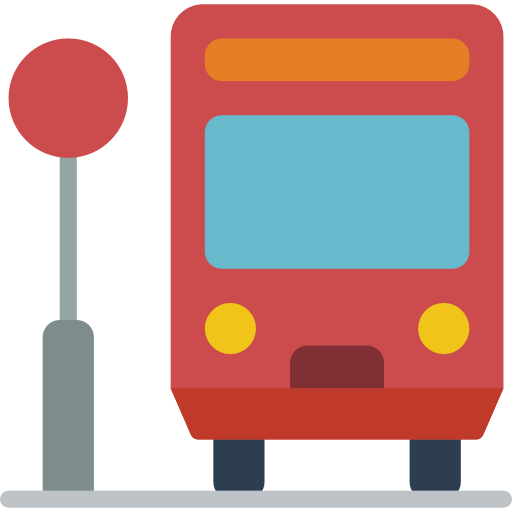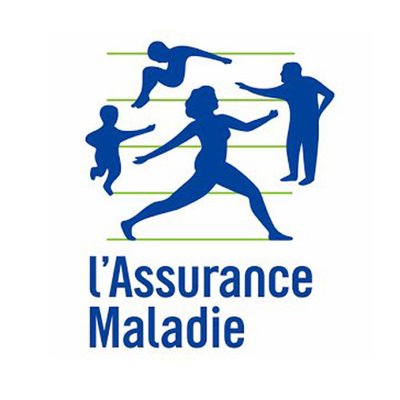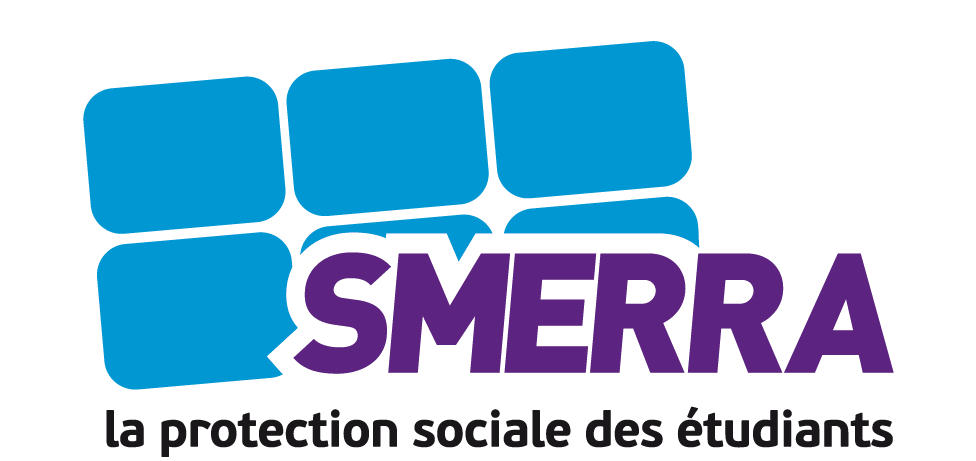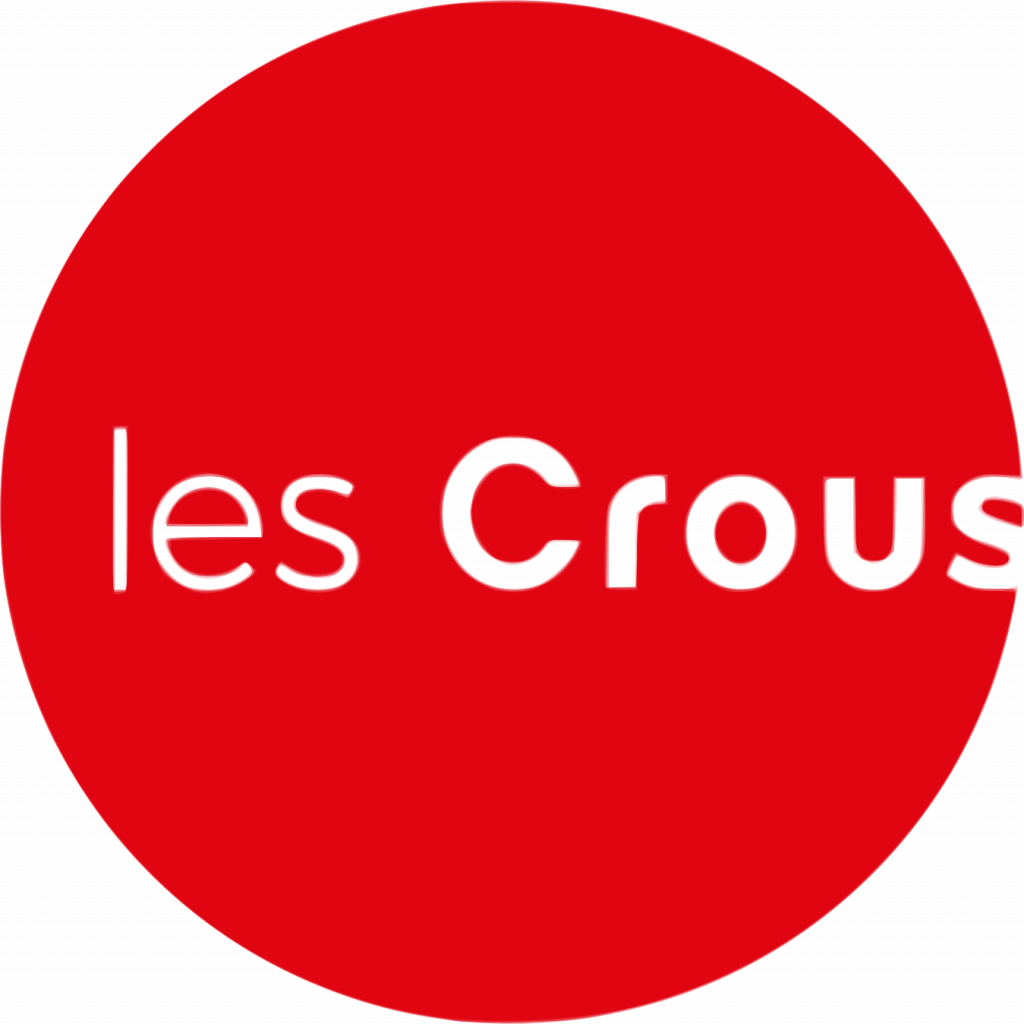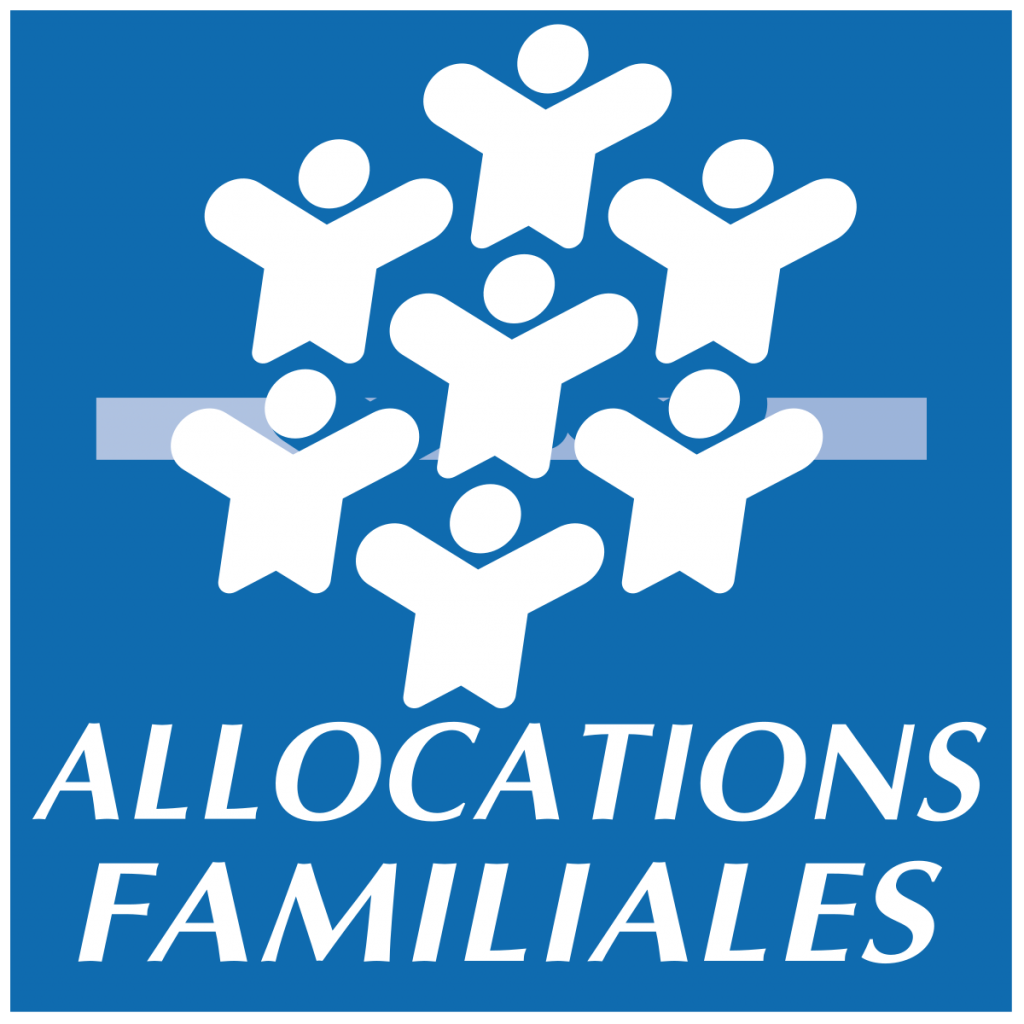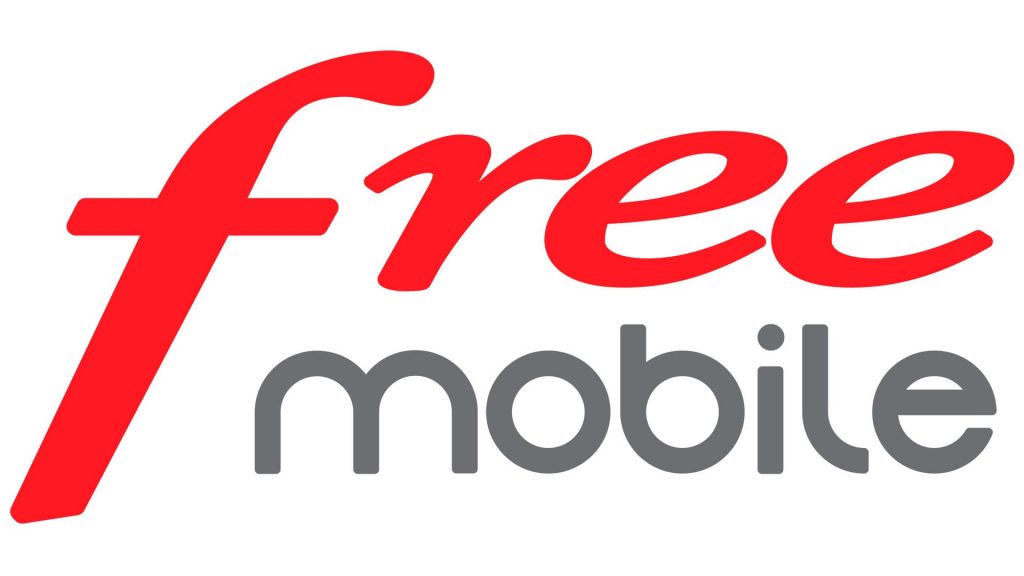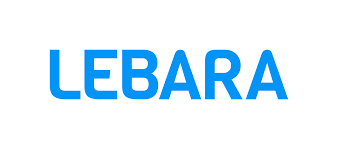
Incoming Students guide
Helping you through your arrival
International student to-do list
I am part of an exchange program (Erasmus) – I am not paying the university fees in France
I am a “free mover” – I am paying the university fees in France
I am a citizen of the European Union (EU)
One month Before my departure
- I fill the admin form sent by my school
- General information
- Crous accommodation
- Insurance policy
- I apply for the European Health Insurance Card (EHIC) with my local health insurance fund
Two weeks before arrival
- I inform my university of my arrival
- If I asked for a CROUS accommodation I book an appointment for my check-in
- I make sure I have all the documents ready for my check-in at the CROUS
Once in France
- I open a bank account
- I get a home insurance (if you chose a CROUS accommodation you will need to be insured before your check-in)
- I register to the CAF – housing financial aid
- I get a phone plan
I am a non-EU citizen
Three months Before my departure
- I fill the admin form sent by my school
- General information
- Crous accommodation
- Insurance policy
- I make an appointment for visa as soon as I have received confirmation of admission by my school.
Two weeks before arrival
- I register to the French social security (CPAM) – mandatory
- I inform my university of my arrival
- If I asked for a CROUS accommodation I book an appointment for my check-in
- I make sure I have all the documents ready for my check-in at the CROUS
Once in France
- I validate my visa online through the French Ministry of Interior website (within 3 month after arrival)
- I open a bank account
- I subscribe to a complementary health insurance – non mandatory
- I get a home insurance (if you chose a CROUS accommodation you will need to be insured before your check-in)
- I register to the CAF – housing financial aid
- I get a phone plan
I am a citizen of the European Union (EU) (paying the university fees)
One month Before my departure
- I fill the admin form sent by my school
- General information
- Crous accommodation
- Insurance policy
- I apply for the European Health Insurance Card (EHIC) with my local health insurance fund
- I pay the CVEC
Two weeks before arrival
- I inform my university of my arrival
- If I asked for a CROUS accommodation I book an appointment for my check-in
- I make sure I have all the documents ready for my check-in at the CROUS
Once in France
- I open a bank account
- I get a home insurance (if you chose a CROUS accommodation you will need to be insured before your check-in)
- I register to the CAF – housing financial aid
- I get a phone plan
I am a non-EU citizen (paying the university fees)
Three months Before my departure
Two weeks before arrival
- I register to the French social security (CPAM) – mandatory
- I inform my university of my arrival
- If I asked for a CROUS accommodation I book an appointment for my check-in
- I make sure I have all the documents ready for my check-in at the CROUS
Once in France
- I validate my visa online through the French Ministry of Interior website (within 3 month after arrival)
- I open a bank account
- I subscribe to a complementary health insurance – non mandatory
- I get a home insurance (if you chose a CROUS accommodation you will need to be insured before your check-in)
- I register to the CAF – housing financial aid
- I get a phone plan
CVEC
The Student Life and Campus Contribution (CVEC) is a mandatory financial contribution, instituted by the “Orientation and Student Success” law. Each student enrolled in a higher education institution must pay the 95€ fee before enrolling in their institution.
This contribution aims to strengthen the social, health, cultural and sports support of students, as well as to reinforce prevention and health education actions carried out for them.
The following students do not have to pay the CVEC :
- Students in exchange agreement*, who undertake a period of mobility in France do not have to pay nor register to the CVEC. This applies to Erasmus students. * On an international exchange: you are spending time in France during the university year as part of an agreement between your higher education institution and a higher education institution in France.
- French government scholarship holders (CROUS), refugees, beneficiaries of subsidiary protection or who are registered as asylum seekers are exempt: however, they must complete the online procedure on the website in order to obtain an acknowledgment of payment by exemption.
The following are not exempt from the CVEC
- foreign government scholarship holders (BGE)
- Scholarship holders from a private structure (e.g. foundation).
You can find here a step by step on how to register. Open PDF.

F.A.Q :
How to find my CVEC code?
The CVEC code is available on your CVEC confirmation of payment “attestation d’acquittement”(under “N° de l’attestation”). Once the payment is processed, you must upload the confirmation of payment in your online administrative registration and fill in your CVEC code. The document can be downloaded as many times as you want from the CVEC website.
What is my INE number?
Your personal INE number is available on your French baccalaureate transcript or on last year’s student enrolment certificate if you were studying in France.
You do not have an INE number if it is your first enrolment in the higher education in France and you come from abroad or you have not attended school in the French National Education. The Crous will provide you with a provisional number, which will be replaced by the INE number attributed by your Institution.
I am registered in several universities do I have to pay the CVEC for each one of them?
No. You are required to pay only once a year the CVEC. The confirmation of payment will have to be presented to each university you are enrolled in.
I am an exchange student do I have to pay the CVEC?
Yes => If you are paying the university fees in France or if you will get your diploma in France.
No => If you are part of an exchange agreement* (ex: Erasmus) do not have to pay nor register to the CVEC.
* On an international exchange: you are still registered in your home country institution but studying in France as part of an agreement between your higher education institution and a higher education institution in France.
I have a scholarship, should I pay the CVEC?
You do not have to pay the CVEC if you are :
- a student with scholarship based on social criteria managed by the CROUS
- a student with scholarship from the French government (scholarship holders from the Ministry of Foreign Affairs, scholarship holders from the Ministries of Higher Education, Culture or Agriculture),
- a scholarship holder financed by the regions for paramedical, health and social training,
However, even if you are exempt, you must complete the online procedure on the website in order to obtain an acknowledgment of payment by exemption. (cf p20 on the Step by Step how to register.
The following are not exempt from the CVEC
- Scholarship holders from a private structure (e.g. foundation).
- Foreign government scholarship holders (BGE)
Opening a bank account
To open a bank account, you need :
- Passeport + VISA (if non european)
- Proof of residency (Crous certificate of residence)
- School certificate of enrolment
IPL has agreements with banks located in Lyon, you can go directly to any of those agencies and request to open a bank account (bring the documents requested) :
Crédit Agricole – Agence Debourg
Adress: 60 avenue Debourg 69007 LYON
Telephone: 04 78 61 01 66 / 04 37 46 40 65
4 english speakers :
- Florent GIRARD,
- Damien MONTUELLE
- Dorra SLIMANE
- Nathalie BOURGUIGNON

Online international banks
If you are unable to open a French bank account, you can open an international bank account. Those online banks allow you to get a debit card, to spend money and withdraw at ATMs in the local currency with 0 fees :
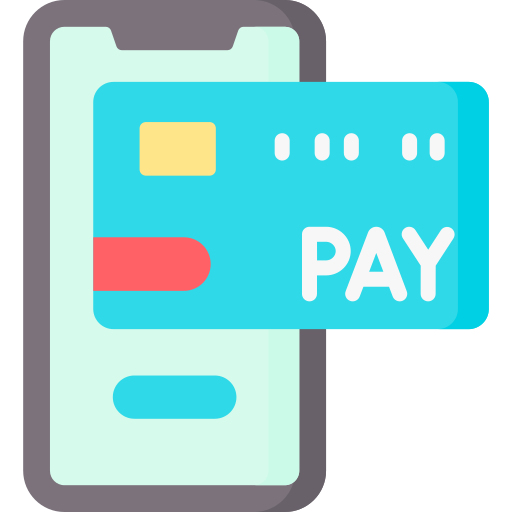
Revolut
Wise
Orange bank
Revolut
- Free current account
- Free physical and virtual debit card
- European IBAN – UK but some nationalities eligible for a French IBAN
- Free money transfer
- Free payment and ATM withdrawal (300€ ATM – 1000€ card payment or transfer)
- Low exchange rates
*Currently only supporting legal residents of the European Economic Area (EEA), Australia, Singapore, Switzerland, Japan and the United States.

Wise
- Free account available for residents in most countries
- Free physical and virtual debit card
- European IBAN
- Cheap money transfer
- Free payment and ATM withdrawal (200€ ATM)
- Lowest exchange rate
*You can only get the wise card if you are a legal residents of the European Economic Area (EEA), Australia, Brasil, Canada, Malaysia, New Zealand, Singapore, Switzerland, Japan and the United States (except for residents in Nevada).

Orange bank (process in French only)
- French IBAN
- 7.99€/month physical and virtual debit card
- Free payment and ATM withdrawal
Orange bank account are available to residents of most countries
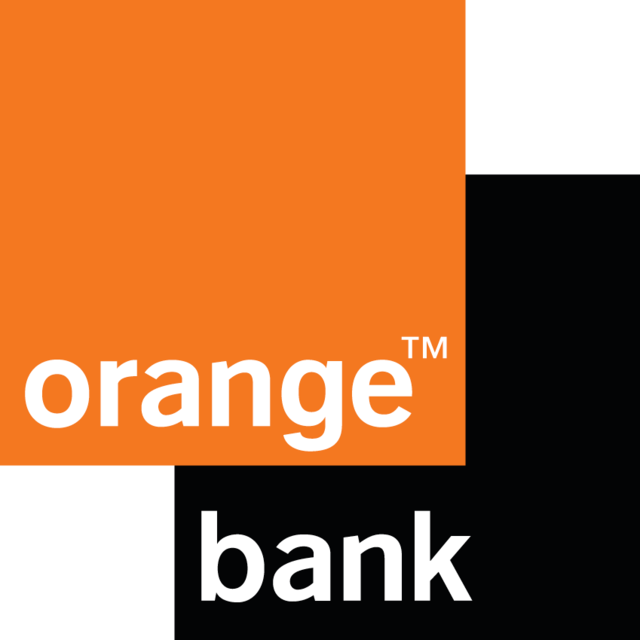
Visa
To study in France, you must comply with all French entry and residence requirements. We encourage you to use the France visa website which will help you with identifiy whether you will require a student visa in 3min.
Citizens of European Union countries do not need a visa to study in France.
Since the 1st January 2021, British citizens must apply for a visa to study in France.
If you need a visa, here are the steps to be taken :
- Have a look at the French visa website to see in which consulate you should sublit your visa application
- Make sure that you make an appointment as soon as you have received confirmation of your admission to your university.
- Once you receive your visa, check the exact wording as indicated in the remarks section of your visa (PDF, 88 ko)
- Once you arrive in France validate your visa within 3 months after your arrival through the French Ministry of Interior website. (online process)
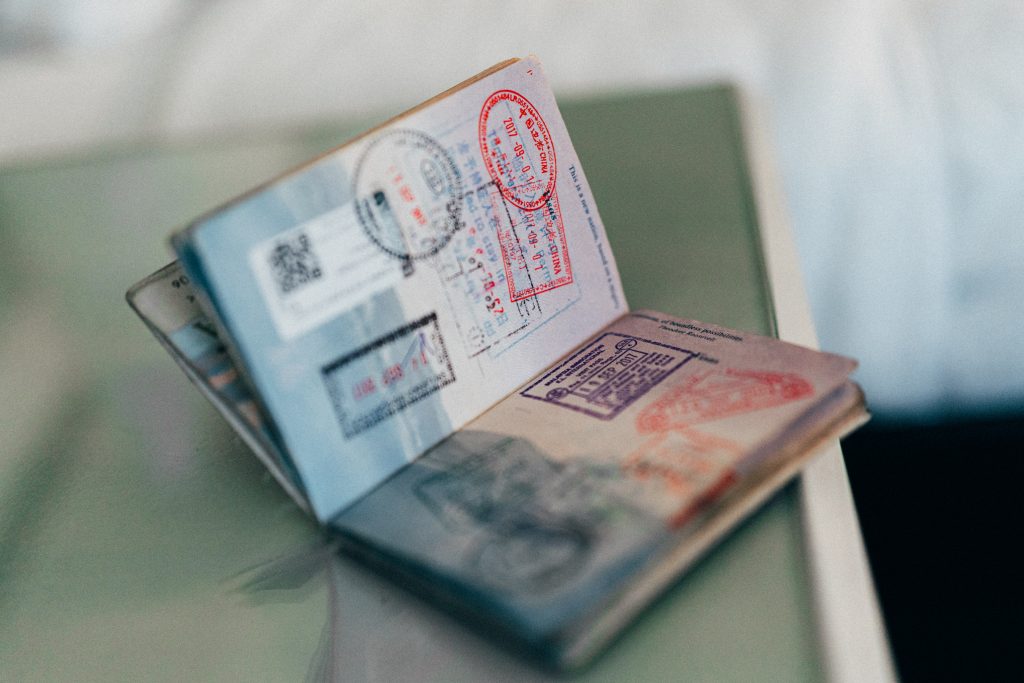
If your program includes a compulsory mobility within the European Union, you will need to present to the consulate a certificate from the university allowing you to obtain a student mobility visa. You will then be able to apply for a multi-year residence permit “student – mobility program.”
What steps should I take once in France ?
You just arrived in France
You have been living in France for one year (or more) and wish to extend your stay?
Valid long-stay visa (“VLS” or “D visa”);
Valid long-stay visa with residence permit (“VLS-TS”)
You must validate your visa within 3 month after your arrival through the French Ministry of Interior website. (online process)
This administrative step is compulsory and guarantees your legal status in France. It will avoid you having to pay a fine at a later date.
Your residence permit gives you certain rights and allows you to work a maximum of 964 hours per year.
You are from Algeria and you have just arrived in France with a “student” visa?
You must request an appointment to validate your visa by applying for your residence permit ► https://www.rhone.gouv.fr/Demarches-administratives/Immigration-et-integration-dans-le-Rhone/Titres-de-sejour/Etudiants/Titre-de-sejour-etudiant
What do you need to validate your visa ?
To validate your visa, you will need:
- a valid email address
- your ÉTUDIANT– R311-3 6° visa
- your date of entry into France
- your permanent address in France
- a credit card to pay the residence permit fee (€ 60)
Online validation step-by-step
- Connect to the website: https://administration-etrangers-en-france.interieur.gouv.fr ;
- Fill in the following information: visa number, start and end date of validity, date of issue, reason for stay;
- Enter additional information: family situation, telephone number, e-mail address;
- Indicate your date of arrival in France and your address of residence in France;
- Pay the resident’s tax of 60 euros:
- Option 1: you can buy an electronic stamp online. The option is proposed to you on the screen.
- Option 2: you enter the number of the electronic stamp that you previously purchased in a tobacco shop.
- Confirmation of validation of your VLS-TS: you will receive two emails
► A first email giving you your login credentials to access your personal space on the ANEF website and perform all your future online procedures.
► A second email confirming the validation of your VLS-TS that you will be able to download and print in order to always have it with you.
Renew your valid long-stay visa
You are concerned by this online application on the national platform ANEF only if you are in possession of a :
- Valid long-stay visa (“VLS” or “D visa”);
- Valid long-stay visa with residence permit (“VLS-TS”)
- Valid residence permit;
Submit your application online on ANEF (https://administration-etrangers-en-france.interieur.gouv.fr) 4 months before the end of your visa or residence permit to facilitate the processing of applications at the Prefecture. It is recommended to anticipate as much as possible these steps.
For example
- Your long-stay visa expires on September 10, 2021. It is recommended that you submit your application to the ANEF between May 10 and July 10, 2021
- Your residence permit expires on October 31, 2021. It is best to submit your application to ANEF between July 1 and August 31, 2021.
Renew your expired long-stay visa
If you submit your application to ANEF when your residence permit has been expired for less than six months, a 180€- fine will apply.
Example: Your long-stay visa expires on September 10, 2021.
submit your application to ANEF between May 10 and July 10, 2021.
If your visa has been expired for more than 6 months:
Schedule an appointment online:
https://www. demarches-simplifiees.fr/commencer/premiere-demandetitre-de-sejour-prefecture-rhone
You still have exams to pass to complete your studies in France before returning to your home country
Submit your renewal application on the ANEF, attaching a letter from your institution such as a “certificate of extension of the academic year” and explain your situation in the “Comments to the administration” section.
You have a professional bachelor’s degree (licence professionnelle) or a diploma at least equivalent to a master’s degree, you wish to stay in France and apply for a “job search” residence permit
- You have a certificate of completion of your diploma
Submit your APS application along with your diploma certificate before the end of the validity of your residence permit on the website: https://www.demarches-simplifiees.fr/commencer/pref-rhonedemande-titre-sejour-recherche-emploi
- You don’t have a certificate of completion of your diploma
Submit your renewal application on the ANEF, attaching a certificate of extension of the academic year or a letter from your institution specifying the date on which you will obtain your degree.
F.A.Q
I can’t find my visa number or my foreign number
On the login page, next to the “ID” box, click on the question mark; the illustrations of a visa and a residence card that appear show (circled in red) where the visa or foreigner number is located on the document.
I am experiencing difficulty in filing my application (wrong password/incorrect statement expired visa…)
If you encounter one of these issues :
- Login/password problem
- Incorrect entry “mention érronée” : Title expired more than 9 months ago
- Incorrect entry “mention érronée” : “file not closed: title in the process of being manufactured / to be recovered from the Prefecture”.)
1.Contact the Citizen Contact Center or “Centre de Contact Citoyen” (CCC) at 0806 001 620 (toll-free number) or via the contact form “CONTACT US” located at the top right of the ANEF home screen.
2.If the CCC has not been able to provide you with a solution; contact the prefecture. You must request an appointment to submit your application to the Rhône prefecture via the form available online at: https://www.demarchessimplifiees.fr/commencer/premiere-demande-titre-de-sejour-prefecture-rhone
*Select the reason (motif) “student” and attach a screen copy of the ANEF error message and, if applicable, the response sent to you by the CCC.
I have submitted my application on the ANEF but I have not received my certificate of extension
Send an email to : mobilite.ipl@ipl.fr
Healthcare
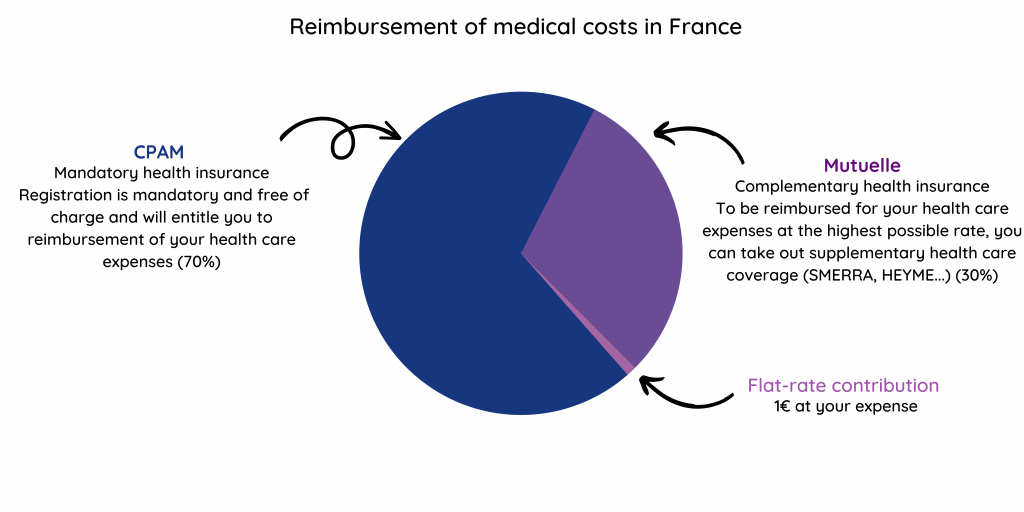
CPAM – mandatory health insurance
In order to qualify for reimbursements of your medical expenses during the academic year, you must be affiliated to the general French social security system called CPAM. As soon as you are enrolled in a French school, even before your arrival, you can register at the CPAM.
Here are the steps to register at the CPAM :
1. Sign up on etudiant-etranger.ameli.fr
- All new registrations must be submitted online via a dedicated website available in French, English and Spanish: https://etudiant-etranger.ameli.fr/#/.
- Fill in the mandatory information :
- Name
- date of birth ;
- country of birth ;
- e-mail address
- start date of health insurance (the date of the beginning of schooling at the institution of higher education).
2. Upload the required documents
- Passport / national ID
- Student visa (if needed)
- School certificate of enrolment
- IBAN (international bank account number) or bank statement (RIB) for your refunds
- a civil status document. The following civil status documents are accepted:
- a complete copy of your birth certificate,
- a birth certificate showing your parents’ information (or any document issued by a consulate),
- a family record book (“livret de famille”),
- a marriage certificate.
3. Go to your personal account on ameli.fr or via the app (Once you have receive your social security number)
- On your personal accout, you will receive a temporary social security number while your registration is being reviewed
- After reviewing your file, if everything is complete, you will receive your certificate of affiliation to Social Security
- You can now order your Carte Vitale (health insurance card) and manage your reimbursements online or via the Ameli app.
4. Declare a “médecin traitant” – referring physician during your first appointement
If you do not declare a referring physician you will only be reimbursed for 30% of your medical expenses.
- To choose a treating physician, you must ask a doctor if he or she agrees to become your treating physician: he or she will make the request electronically or give you a form to send to the Health Insurance.
- To find a doctor and book an online appointment go to :
- https://www.doctolib.fr/ (doctors can be filtered according to the languages they speak)
If you are a citizen/resident of an EU Member State, before your departure, you should apply for the European Health Insurance Card (EHIC) with your local health insurance fund.The card will ensure that you have access to healthcare in France without having to complete any formalities with the local French authorities. As regards the services provided, you will be treated in the same manner as anyone covered under the French state system.
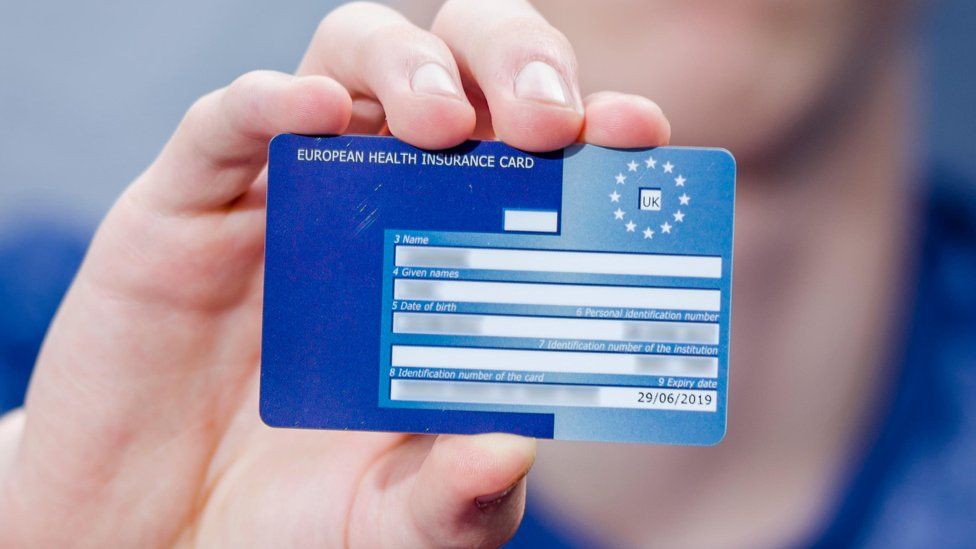
F.A.Q
What is a “carte Vitale” – health insurance card ?
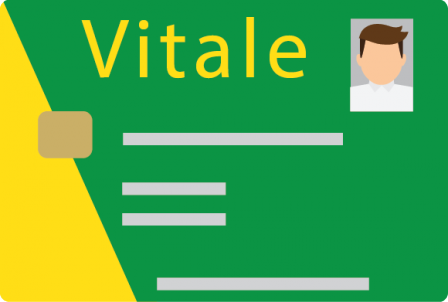
The Vitale card is a free card with your social security number that allows easy access to care and direct reimbursement.
The Health Insurance reimburses 70% of the costs related to health expenses.
I don’t have a “carte vitale” yet, can I still be reimbursed from my medical expenses ?
Yes, if you registered to the CPAM (Ameli).
Without a Vitale card, you can still be reimbursed: however, you have to pay the consultation in advance, and the reimbursement is made a few days or weeks later. The doctor will fill out a care sheet “feuille de soins” he/she will give it to you at the end of the consultation, you will then have to send it by mail at :
CPAM du Rhône – 69907 LYON Cedex 20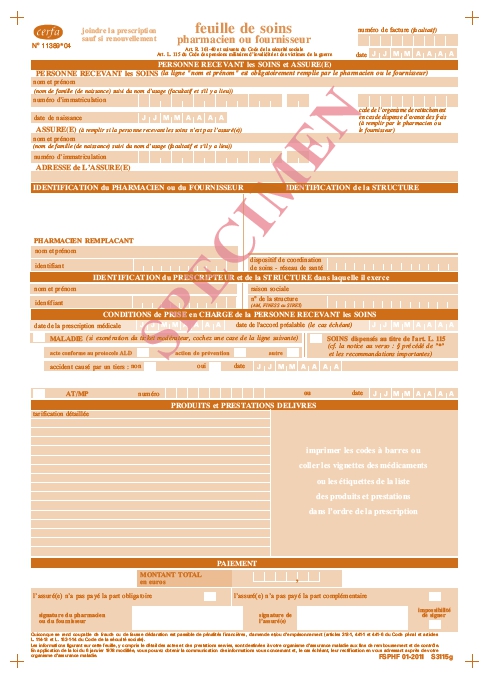
What is a “médecin traitant” – referring doctor?
Le “médecin traitant” is your reference physician, he/she centralizes your medical file (test results, diagnoses, treatments…). In most cases, he/she is a general practitioner and works in an office, a hospital or a health center.
Except in exceptional cases, you must go to him/her first to respect the coordinated care pathway (explaines below).
To choose a treating physician, you must ask a doctor if he or she agrees to become your treating physician: he or she will make the request electronically or give you a form to send to the Health Insurance. It’s that simple – but keep in mind that doctors are in high demand: they don’t have to accept if they already have too many patients.
To find physician contacts in your area, go to a handy site:
What should I do if I need specific care that a general practitioner cannot provide?
You must first consult your referring doctor. If you consult a specialist physician without a prescription from your referring doctor, you will not be reimbursed for your medical expenses.
However, there are exceptions: gynecologists, ophthalmologists, stomatologists and psychiatrists (if you are between 16 and 25 years old) can be consulted directly.
Before making an appointment with a specialist, remember to ask if a prescription is required for reimbursement. If the answer is yes, contact your doctor.
How much is a doctor appointment in France?
25€ but if you have all the righ insurances you will only have to pay 1€!
- the CPAM will reimburse 17,5€
- if you have a “mutuelle” complementary insurance, it will reimburse 7,5€
- you only have a 1€ left to pay
Warning : Some doctors have higher consultation rates – depending on their specialty and sector of activity (sector 1 or 2), however, the Health Insurance reimburses a fixed part 17,5 € : you may therefore have to pay more.
- a sector 1 doctor charges the basic rate of the Health Insurance: there are no extra fees
- a sector 2 doctor may charge more than the basic consultation fee “dépassement d’honoraires” (this often happens with gynecologists, ophthalmologists…): these fees will not be reimbursed by the Health Insurance.
Mutuelles – complementary health insurance
Complementary health insurance plans, or mutuelles, are a top-up service covering the costs that remain once the social security has reimbursement its part (e.g. the remaining 30% of doctor’s bills). Registration with a student mutuelle is optional but recommended. In order to be eligible for a mutuelle, you must already be registered with the French social security system (CPAM). There are a large number of insurance plans available so it is a good idea to compare the options before choosing your own.

Smerra
Pack Confort France 30€/month (home insurance included)
Pack Confort France 25€/month
- Hospitalization fees: 100% coverage.
- General medical expenses
- General practitioner and specialist consultation: 100%.
- Pharmaceutical expenses, radiology, tests: 100%.
- Dental care: 100%.
- Optics: 100% + fixed price for frames up to 150€ + contact lenses: 100% + fixed price of €30/year.
- Civil liability coverage
- Reapatriation assistance
- Home Insurance (studios only)
*monthly plan
You can also join :
- By phone at 04 72 76 88 86 (english, spanish and french) from Monday to Friday from 9am to 5pm (no tax call)
- At the branch offices
- Hospitalization fees: 100% coverage.
- General medical expenses
- General practitioner and specialist consultation: 100%.
- Pharmaceutical expenses, radiology, tests: 100%.
- Dental care: 100%.
- Optics: 100% + fixed price for frames up to 150€ + contact lenses: 100% + fixed price of €30/year.
- Civil liability coverage
- Reapatriation assistance
*monthly plan
You can also join :
- By phone at 04 72 76 88 86 (english, spanish and french) from Monday to Friday from 9am to 5pm (no tax call)
- At the branch offices
Heyme
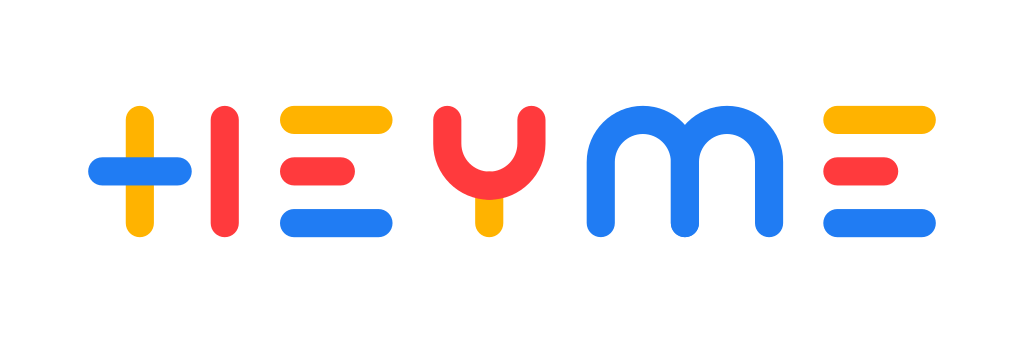
Level 1 – 9,99€/month
Level 2 – 17.90€/month
- Hospitalization fees: 100% coverage.
- General medical expenses
- General practitioner 100%.
- Pharmaceutical expenses 100%.
- Civil liability coverage
- Reapatriation assistance
*no home insurance
- Hospitalization fees: 100% coverage.
- General medical expenses
- General practitioner 100%.
- Pharmaceutical expenses, radiology, tests: 100%
- Dental care : 100%
- Civil liability coverage
- Reapatriation assistance
*no home insurance
Student housing
The CROUS is the institution providing student housing in France. However, the students cannot book their accommodation themselves, they must fill the “accomodation form” and send it to their schools.
Students can choose between 3 different types of housing :
*keep in mind that accomodations will be allocated on a first-come, first served basis and according to the CROUS’s availabilities and that you cannot choose your residence.
Room
(around 10 m²) includes a bathroom and toilet.
The kitchen is shared. No kitchenware (at your
charge). Blanket, bolster and bed linen are not provided but can be rented for 10€/month.
Price: 271€/month
*non-contractual picture
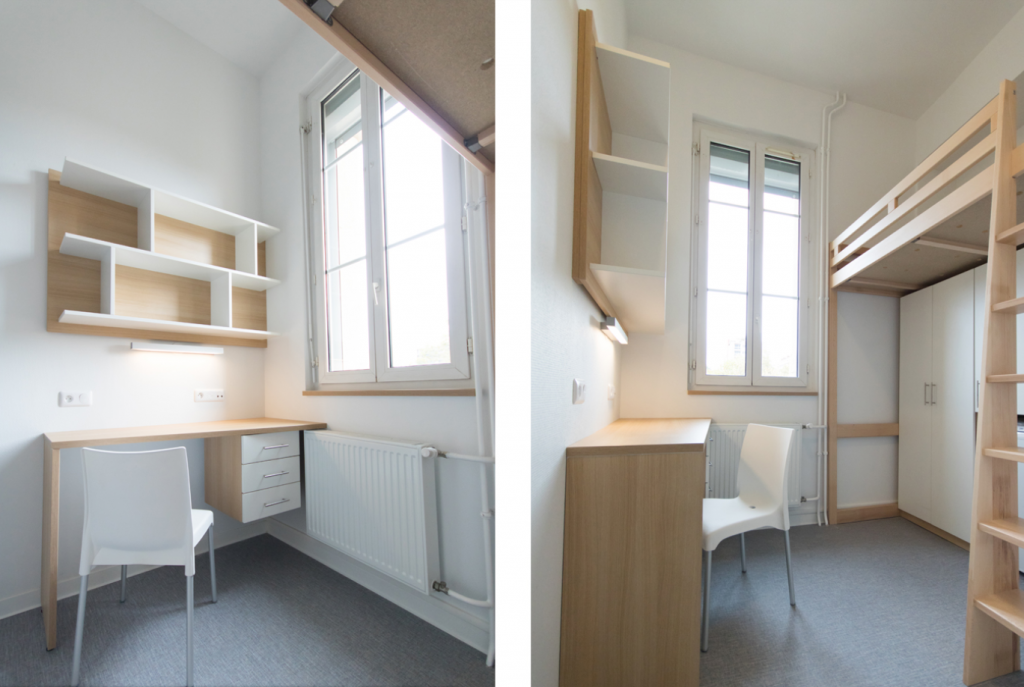
Studio
(12 to 20m²) includes a bathroom and toilet as
well as a private kitchen. No kitchenware (at your charge). Blanket, bolster and bed linen are not provided but can be rented for 10€/month.
Price: 406€/month
*non-contractual picture
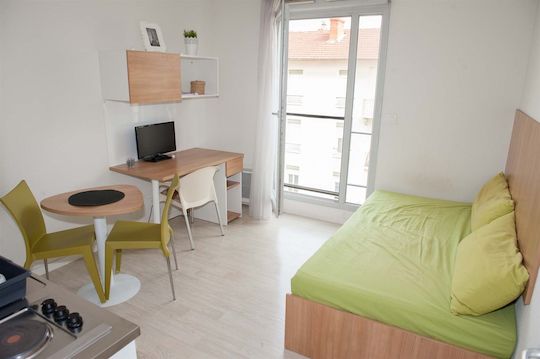
Shared flat
(generally for 5 people) includes a
bathroom, toilet and a kitchen shared by
all roommates. No kitchenware (at your
charge). Blanket, bolster and bed linen are
not provided but can be rented for 10€/month.
Price: 325€/month
*non-contractual picture
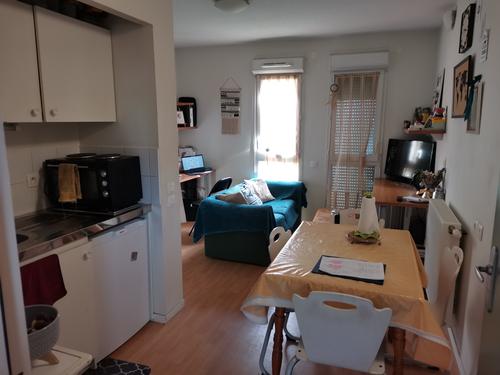

How to apply for a CROUS accommodation ?
1- Fill out the accommodation form sent by your school
In your school’s admin form, you will find the accommodation form. If you choose to stay in a CROUS residence, fill out this form and send it back to your school.
In the form you have to choose between the 3 types of accommodation presented above (room, studio, shared flat).
*keep in mind that due to a short number of availabilities, you cannot choose the residence you will be staying at, a residence will be assigned to you according to the CROUS’s availabilities.
2- You will receive an email confirming the CROUS residence you have been assigned to
This email will be send by the IPL or your school. This letter will informe to which residence have been assigned, you can now book an appointment at your residence.
3- Book an appointment for your check-in date (2 weeks prior arrival)
You must book an appointment in the residence (appointed by your school) about 2 weeks in advance.
These appointments will allow you to finalize your registration in the residence and make the required payments (rent, deposit, administrative fee, booking fee…)
To book an appointment click on the link of your residence :
Once you have selected the date of your appointment, you will be asked to create an account at MesServices.etudiant.gouv.fr. Find the step by step here on how to create an account.
4- Have all the documents ready upon arrival
- A copy of your ID (passport, National Identity Card)
- Information form “fiche de renseignement”
- Admission letter “Décision d’admission” (related to the rules – to be filled out and signed in two copies) +
- Financial appendix “Annexe financière” you will have to pay the Entrance fee “Droit de réservation” in addition to your rent (in the same document as the admission letter)
- Rules of the residences “Règlement intérieur résidence”
- Intervention authorisation “Décharge d’intervention”,
- A certificate of enrolment (to be delivered by your school)
- Visale certificate (free GUARANTOR system, cf part 3)
- Housing insurance (cf part 4, Please make sure that the insurance you choose also includes the civil liability (“assurance responsabilité civile”), which will be required by your school.
- 3 ID pictures
- Bank details
During your check in you will be asked to pay the following fees :
- 10€ processing file
- 200€ or 300€ entrance fee (not refundable) according to the type of room
- 230€ or 250€ deposit (refund at the end of your stay if nothing has been damaged) according to the type of room
3- Get a guarantor for free : Visale
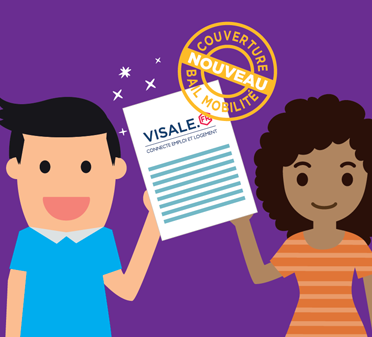
Visale is a service offered by Action Logement which helps students settle in a Crous accommodation or private housing by providing a free guarantee to the Crous or your landlord.
Visale is open to all foreign students, if you are not part of the European Union, it is available to holders of a Long Stay Student Visa standing for student residency permit (Visa Long Séjour valant Titre de Séjour, mention « étudiant » / VLS-TS).
Click here for the step-by-step on “how to get your visa“
4- Get a home insurance
SMERRA complementary health insurance + home insurance
Lemonade
Lemonade
Online home insurance that offers services in English and French.
- Home Insurance
- Civil liability coverage
- Services in English (and French)
- Online services – register in less than 10 on the website or on the app

5- Do your check in and get settled
That’s it ! Once you have completed all the documents you are ready to settle in your CROUS accommodation.
Here is a few useful budget-friendly stores to furnish your place :
- Second hand (low price and eco-friendly)
- Emmaüs (kitchen utensils, furniture, clothes…)
- Shop new :
- Action (furniture, home decor, kitchen utensils…) – similar to target but smaller
- Primark (bed sheets, home decor)
Students can choose alternative accommodations, without the help of IPL:
Be hosted by a French family in Lyon: expat-agency
Be part of an intergenerational experience: Tim & Colette and Pari Solidaire
Rent a small apartment in a private student Hall (18 to 40 m²): StudiLodge
CAF
The CAF Caisse d’Allocation Familiale provides housing assistance, or commonly called APL. If you are an international student living in France you are eligible.
The APL is a “personalised help for rent”, which means a monthly amount of money to help you pay your rent.
I have an accommodation with the CROUS
I have an accommodation on the private market
1- Important information
- Apply for the housing allowance (APL) as soon as you enter the accommodation.
- The housing allowance entitlement will become active the month after you move in. For instance, if you move in September and you register your application straight away, you will start to receive housing allowance as of October. Your first housing allowance instalment will be paid between the 5th and 10th November.
Calendar :
September: Date of entry into the accommodation
October: Start date of entitlement to a Caf ALE
November: October ALE paid between 5th and 10th November
2 – Have the documents ready for registration
- Bank account details (RIB) you need a french RIB
- Download the certificate available at the Cité-U department of your Crous either via the gateway « MesServices » (http://messervices.etudiant.gouv.fr) or on request from your Crous residence;
- your income for the last 12 months (month by month);
- Proof of your identity and civil status (national ID card or passport and birth certificate)
- If you are a European Union citizen: school certificate, copy of your European Health Insurance Card,
- If you are a student from a country outside the European Union: copy of your valid French residence permit
3- Follow the step-by-step
Follow part 1 of the step-by-step to apply for the APL (CROUS accommodation).
- Create an account
- Apply for the APL
1- Important information
- Apply for the housing allowance (APL) as soon as you enter the accommodation.
- The housing allowance entitlement will become active the month after you move in. For instance, if you move in September and you register your application straight away, you will start to receive housing allowance as of October. Your first housing allowance instalment will be paid between the 5th and 10th November.
Calendar :
September: Date of entry into the accommodation
October: Start date of entitlement to a Caf ALE
November: October ALE paid between 5th and 10th November
2 – Have the documents ready for registration
- Proof of your identity and civil status (national ID card or passport and birth certificate),
- If you are a European Union citizen: school certificate & copy of your European Health Insurance Card,
- If you are a student from a country outside the European Union: copy of your valid residence permit.
- Bank account details (RIB),
- Amount of your resources,
- Proof of residence signed by your landlord (if this is requested at the end of the application).
3- Follow the step-by-step
Follow part 2 of the step-by-step to apply for the APL (private market accommodation).
- Create an account
- Apply for the APL (housing financial aid)
F.A.Q
Can I register without a social security number ?
Yes, you can submit your application online without having a social security number.
Begin by submitting your application for housing benefit at caf.fr. You can then create an account. A temporary user name will be given to you so you can continue your application online (the temporary user name will be composed of the letter P and 8 figures). This user name will allow you to log in to the My Account space.
After the CAF has processed your application, it will assign you a temporary social security number. This will allow you to log in to your My Account space for all your tasks, to track the progress of your applications and your payments, etc.
To facilitate the processing of your application, please send the CAF an identity document (identity card or passport) and a civil status document (birth certificate).
Can I get financial aid for a shared apartment?
Yes. In the event of a shared apartment, the rent considered for the calculation of the assistance is divided according to the number of roommates.
Useful tips

Phone plan
Most of the french operators will require you to have a french bank account (IBAN). The two options bellow allow you to get a phone plan + sim card and pay only with your card (debit or credit)
Free
At the “Free – Boutique Lyon Bellecour” shop of bellecour, you can get a sim card and a phone plan and pay by card directly at the shop.
- Plans from 2€ to 20€
- From 50Mo to 110Go of internet
Transportation
To use Lyon’s public transportation you will need a TCL card
- Online : Get your card + plan online (only in French)
- get the student plan 25€/month (monthly payment)
- Go to one of the 5 agencies in Lyon
You are between 18 and 25 years old and you are a student, or a young person looking for a job, the Metropolis of Lyon, can lend you a bicycle for 1 year (for free).
